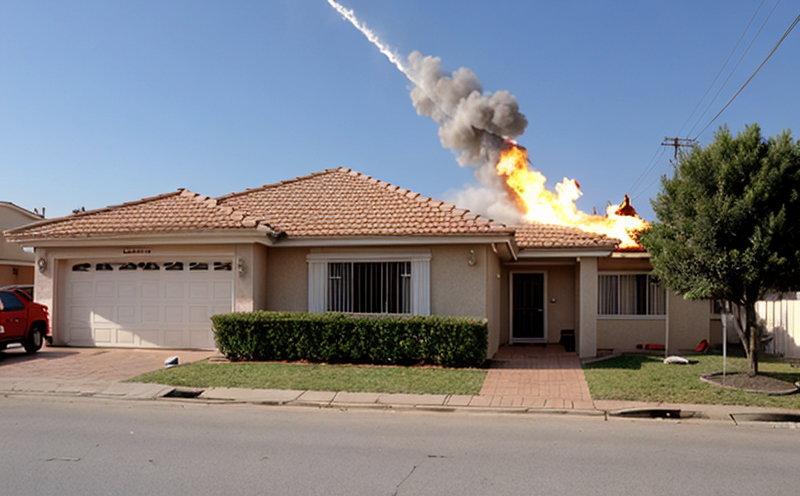Fire Prevention in Residential Areas: A Comprehensive Guide
Fires can be devastating to residential areas, causing damage to property, injury to occupants, and even loss of life. Fire prevention is essential to protect homes, families, and communities from the risks associated with fires. In this article, we will explore various aspects of fire prevention in residential areas, including the causes of fires, common hazards, and effective strategies for preventing fires.
Causes of Fires
Fires can be caused by a variety of factors, including electrical malfunctions, cooking accidents, open flames, and ignition sources such as cigarettes or candles. The National Fire Protection Association (NFPA) estimates that electrical malfunctions are responsible for 12 of home fires, while cooking accidents account for 21. Open flames from candles, stovetops, and fireplaces also pose a significant risk.
Common Hazards
Residential areas can be prone to various hazards that increase the risk of fires. Some common hazards include:
Electrical Overheating: Faulty electrical wiring, overloaded outlets, or damaged cords can cause overheating, which can lead to fires.
Cluttered Spaces: Piles of paper, boxes, or other combustible materials can fuel fires and make them difficult to extinguish.
Flammable Liquids: Gasoline, oil, paint thinner, and other flammable liquids can ignite easily, causing fires.
Cooking Accidents: Cooking unattended or using appliances in a hazardous manner can lead to fires.
Open Flames: Candles, stovetops, fireplaces, and other open flames can pose a significant risk of fires.
Effective Strategies for Fire Prevention
To prevent fires in residential areas, it is essential to implement effective strategies that address common hazards. Some key strategies include:
Conduct Regular Safety Inspections: Homeowners should regularly inspect their homes for potential fire hazards, including electrical wiring, appliances, and flammable materials.
Maintain Appliances: Regularly clean and maintain appliances, such as stoves, ovens, and dryers, to prevent overheating and fires.
Use Flame-Resistant Materials: Use flame-resistant materials, such as wool or synthetic fibers, for upholstery and curtains to reduce the risk of fires.
Implement Fire Safety Practices: Teach household members about basic fire safety practices, including stopping, dropping, and rolling in case of a fire.
Install Smoke Alarms and Carbon Monoxide Detectors: Install smoke alarms and carbon monoxide detectors on every level of the home and inside each sleeping area to alert occupants of potential fires.
Preventing Electrical Fires
Electrical malfunctions are a significant cause of residential fires. To prevent electrical fires, follow these steps:
Regularly Inspect Electrical Wiring: Check for damaged or worn-out wiring, and replace it if necessary.
Avoid Overloading Outlets: Do not overload outlets with too many appliances or devices, as this can cause overheating.
Use Ground Fault Circuit Interrupters (GFCIs): Install GFCIs in areas prone to moisture, such as kitchens and bathrooms, to prevent electrical shocks and fires.
Use Fire-Resistant Cords: Use fire-resistant cords for extension cords and power strips to reduce the risk of fires.
Preventing Cooking Fires
Cooking accidents are a leading cause of residential fires. To prevent cooking fires:
Never Leave Cooking Unattended: Always stay in the kitchen while cooking, especially when using oil or grease.
Use Oven Thermometers: Use oven thermometers to monitor temperature and avoid overheating.
Keep Cooking Areas Clean: Regularly clean up spills and messes in the kitchen to prevent fires.
Use Fire-Resistant Pans: Use fire-resistant pans and cookware to reduce the risk of fires.
Preventing Fires from Open Flames
Open flames can pose a significant risk of fires. To prevent fires from open flames:
Never Leave Candles or Smoking Materials Unattended: Always extinguish candles and smoking materials when leaving the room.
Keep Candles Away from Flammable Materials: Keep candles at least 12 inches away from flammable materials, such as curtains or bedding.
Use Smoke-Free Zones: Designate smoke-free zones in the home to reduce the risk of fires.
QA Section
Q: What are some common causes of residential fires?
A: Electrical malfunctions, cooking accidents, open flames, and ignition sources such as cigarettes or candles can cause fires in residential areas.
Q: How often should I inspect my home for potential fire hazards?
A: Conduct regular safety inspections at least once a month to identify potential fire hazards, including electrical wiring, appliances, and flammable materials.
Q: What is the most effective way to prevent electrical fires?
A: Regularly inspecting electrical wiring, avoiding overloading outlets, using ground fault circuit interrupters (GFCIs), and using fire-resistant cords can help prevent electrical fires.
Q: How can I prevent cooking fires?
A: Never leave cooking unattended, use oven thermometers to monitor temperature, keep cooking areas clean, and use fire-resistant pans to reduce the risk of cooking fires.
Q: What are some key strategies for preventing residential fires?
A: Conducting regular safety inspections, maintaining appliances, using flame-resistant materials, implementing fire safety practices, and installing smoke alarms and carbon monoxide detectors can help prevent residential fires.
Q: How often should I replace my smoke alarm batteries?
A: Replace smoke alarm batteries at least once a year to ensure they are functioning correctly and can alert occupants of potential fires.
Q: Can I use candles in the home if I take certain precautions?
A: Yes, but be cautious when using candles. Keep them away from flammable materials, never leave them unattended, and extinguish them when leaving the room.
Q: What should I do in case of a fire emergency?
A: In case of a fire, stop, drop, and roll to escape the flames, and then call 911 or your local emergency number. Do not attempt to fight the fire yourself unless it is safe to do so.
By understanding the causes of fires and implementing effective strategies for prevention, residents can reduce the risk of fires in their homes and communities. Regular safety inspections, maintaining appliances, using flame-resistant materials, and installing smoke alarms and carbon monoxide detectors are essential steps towards preventing residential fires.

































